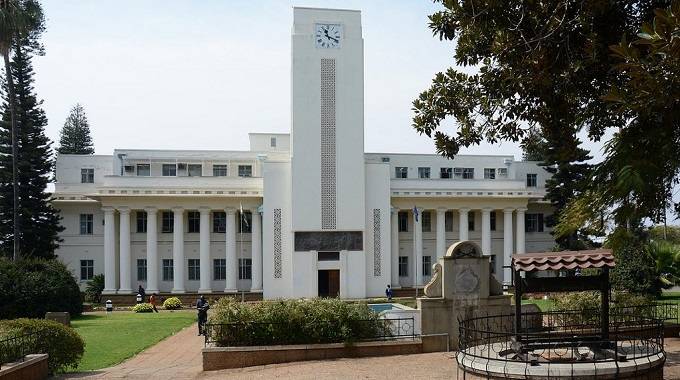Due to increases in the price of basic service delivery inputs, the Bulawayo City Council (BCC) has clarified its decision to review tariffs by benchmarking them with the prevailing exchange market rate.
Earlier this week, BCC announced that it will review its tariffs by indexing them with the United States Dollar, citing the weakness of the local currency that continued to be eroded by inflation.
However, this announcement did not go down well with residents who thought the council was doing away with payments in local currency and increasing tariffs.
Presenting the city’s billing system, BCC Finance manager – Revenue Section under the Financial Services Department, Qiniso Ndlovu, said BBC had to match the inflation that was seen in the market.
“We have realised that there has been substantial increases in the prices of basic services delivery inputs, which include fuel, bitumen, spares, medicines, and stationery due to the economic conditions that are prevailing in the country,” she said.
Noting that there has been a change in the exchange rate regime since the beginning of May, BCC was prompted to urgently review the city’s existing tariffs, saying they were no longer adequate to cover costs needed to provide services.
“The city has therefore advertised that it will review the tariffs, not necessarily increasing the tariffs,” Ndlovu underlined, adding that the review would be done through aligning tariffs with the US dollar value that was in place at the time the city’s budget was approved by the government.
“The city has therefore based the tariffs that were in existence on the US dollar value that was there and therefore, would be translating these tariffs monthly at the end of each month, using the prevailing rate on the last day of each month,” Ndlovu said.
The last day of each month is the billing date that is reflected on the bills per month, she noted.
In the same breath, Ndlovu said if there is no movement in the exchange rate, the bills would remain constant for certain months.
“The city will however continue to bill in the Zimbabwean dollar and accept payments in local currency and foreign currency,” she said.
However, the finance manager encouraged residents to pay their bills in time to avoid the erosion of the Zimbabwean dollar value thereby affecting service delivery.
She also encouraged residents to pay in foreign currency, especially for those who had access to it.
“The city needs some imported inputs and some inputs are sold in foreign currency,” Ndlovu said.
The finance manager highlighted that currently, BCC’s interest rate is not commensurate with the erosion of the purchasing power of the money paid in local currency.
“Therefore residents are to pay in time or the city may have to review the interest rate to one that is commensurate with the purchasing power of our currency,” Ndlovu remarked.
BCC has proposed to bill tariffs in US, with effect from May 31, 2022, which are service fees for June 2022 plus the water and sewer consumption for the month of May using the prevailing exchange rate.

